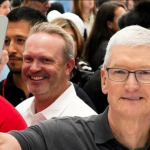Bitcoin and a decentralized society are closely intertwined. Bitcoin is a decentralized digital currency that is not subject to the control of any government or financial institution. This makes it a valuable tool for building a decentralized society, in which power and authority are distributed among individuals and groups, rather than being concentrated in the hands of a few.
Bitcoin can be used to promote a decentralized society in a number of ways. First, it can be used to create new economic opportunities. Bitcoin allows people to send and receive money without having to go through a bank or other financial institution. This can help people in developing countries or in countries with unstable currencies to access financial services. Second, Bitcoin can be used to build decentralized financial systems. For example, Bitcoin can be used to create decentralized exchanges, which allow people to trade Bitcoin and other cryptocurrencies without having to go through a centralized intermediary. Third, Bitcoin can be used to build decentralized applications (dapps). Dapps are applications that are built on top of the Bitcoin blockchain. They can be used to create a variety of decentralized services, such as decentralized social media networks and decentralized voting systems.
Bitcoin is still a relatively new technology, but it has the potential to play a major role in building a decentralized society. By providing a decentralized currency and a platform for building decentralized applications, Bitcoin can help to create a more just and equitable world for all.
Here are some specific examples of how Bitcoin is being used to promote a decentralized society:
- Bitcoin is being used to provide financial services to people in developing countries and in countries with unstable currencies. For example, the Bitcoin micropayment platform Bitrefill allows people to use Bitcoin to purchase mobile phone airtime and other prepaid services in over 170 countries.
- Bitcoin is being used to build decentralized financial systems. For example, the decentralized exchange Uniswap allows users to trade Bitcoin and other cryptocurrencies without having to go through a centralized intermediary.
- Bitcoin is being used to build decentralized applications (dapps). For example, the dapp Aragon is a decentralized organization platform that allows users to create and manage decentralized organizations.
Bitcoin is a powerful tool for building a decentralized society. It provides a decentralized currency and a platform for building decentralized applications. By using Bitcoin, we can create a more just and equitable world for all.
Building a decentralized society is a complex and challenging task, but it is one that is worth pursuing. A decentralized society is one in which power and authority are distributed among individuals and groups, rather than being concentrated in the hands of a few. This can lead to a number of benefits, including greater individual freedom, more economic opportunity, and a more just and equitable society.
There are a number of different ways to build a decentralized society. One approach is to use technology to create new systems and institutions that are decentralized by design. For example, blockchain technology can be used to create decentralized financial systems, decentralized social media networks, and decentralized voting systems.
Another approach to building a decentralized society is to change the way that we think about power and authority. We need to move away from the traditional model of top-down governance and towards a model of bottom-up governance. This means empowering individuals and communities to make their own decisions and to manage their own affairs.
Here are some specific things that can be done to build a decentralized society:
- Develop and support decentralized technologies. Blockchain technology, decentralized storage networks, and other decentralized technologies can be used to create new systems and institutions that are more democratic and equitable.
- Promote decentralized governance. This means empowering individuals and communities to make their own decisions and to manage their own affairs. It also means reducing the power of centralized institutions, such as governments and corporations.
- Support decentralized education and culture. This means promoting a culture of critical thinking and self-reliance. It also means creating decentralized educational institutions that are free from government and corporate control.
- Build decentralized communities. This means creating communities of people who are committed to the principles of decentralization. These communities can provide support and resources to each other and can work together to build a better future.
Building a decentralized society is a long-term project, but it is one that is worth pursuing. By working together, we can create a more just and equitable world for all.
Shayne Heffernan









